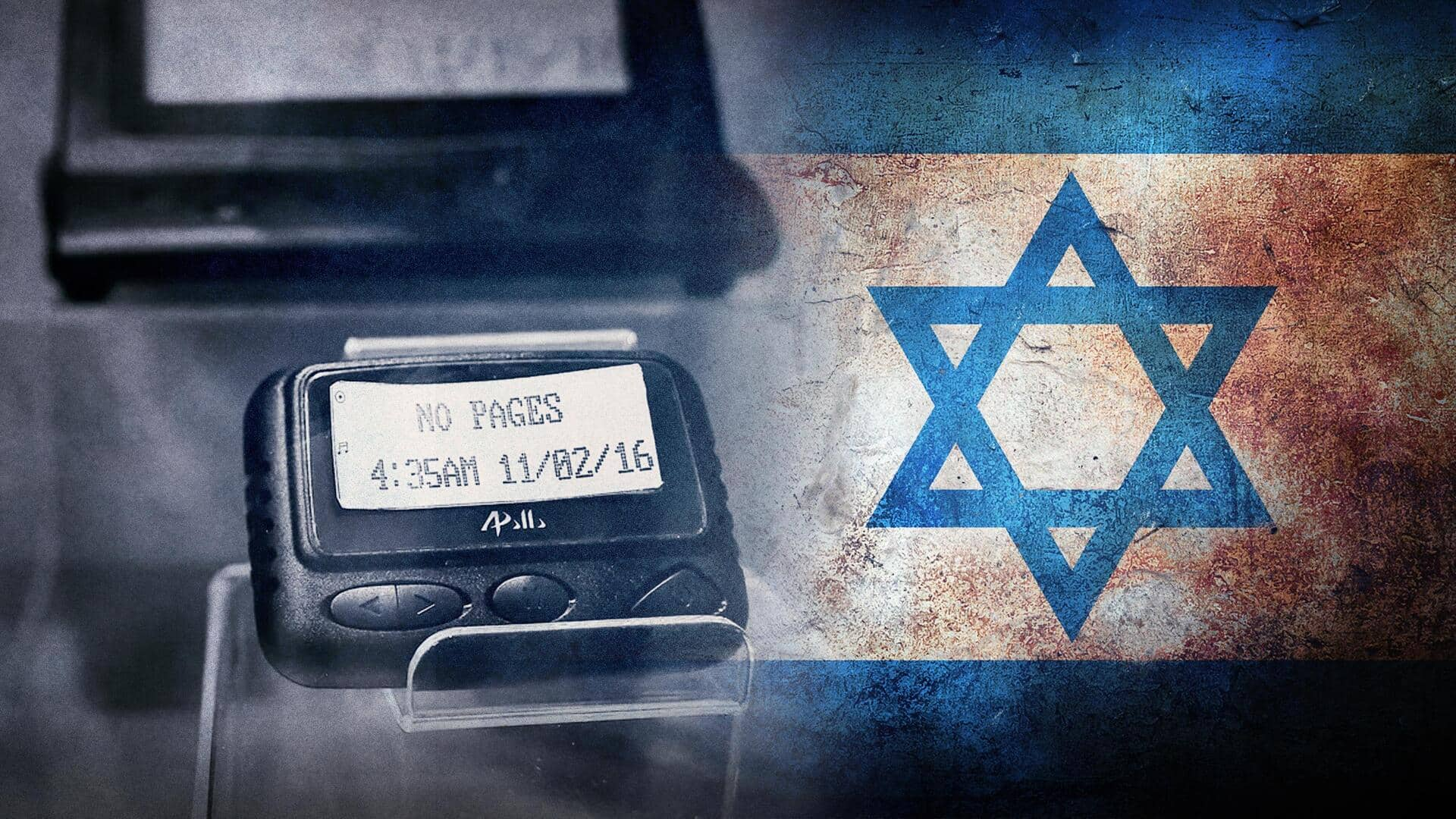
Explained: How Mossad used shell companies to target Hezbollah
What's the story
A Lebanese security source alleged on Friday that Israel's Mossad planted explosives in at least 5,000 pagers—some of which caused the deadly explosions in Lebanon earlier this week, Reuters reported.
On Thursday, New York Times said BAC Consulting—a Hungary-based pager manufacturing firm—produced the explosive devices used by Hezbollah.
Citing three intelligence officers, the report said BAC Consulting is an Israeli shell company.
It also said two other shell companies existed to conceal the identities of those involved in the operation.
Context
Why does this story matter?
Since the Gaza conflict erupted last October, Israel and Hezbollah have engaged in cross-border warfare.
Hostilities escalated on October 8 when Hezbollah launched rockets at Israel in support of Hamas.
Beirut has since been struck three times.
For several months, suspicions had emerged that Israel has infiltrated Hezbollah's independent communication system, especially after the assassination of several Hezbollah commanders through precision strikes.
Official statements
US says it was informed of 'military operation' by Israel
Israel hasn't claimed responsibility for the attacks yet.
However, the United States has said Israel informed Defense Secretary Lloyd Austin about a planned military operation in Lebanon before pagers exploded, but did not provide specifics, according to AP.
Officials added that the US had no advance notice of the second wave of attacks, which targeted walkie-talkie radios on Wednesday.
Planning phase
Operation details: Months in the making
The New York Times, citing 12 current and former defense and intelligence officials, reported that the operation was intricate and had been planned over several months.
The pagers, imported by Hezbollah, were allegedly rigged with explosives by Mossad.
This week's attacks on electronic devices seem to be the result of a months-long Israeli operation aimed at simultaneously targeting numerous Hezbollah members.
Device origin
Pagers used for communication by Hezbollah
The pagers, manufactured by Taiwan-based Gold Apollo, were not directly produced by the company. Instead, a European firm granted them the right to use its brand name.
Hezbollah leader Hassan Nasrallah had previously cautioned members against carrying cell phones due to potential tracking by Israel, leading the group to use pagers for communication.
Covert tactics
Shell companies mask Israeli intelligence identities
Before Hezbollah's decision to use pagers, Israel had already initiated a plan to establish BAC Consulting—posing as an international pager producer.
The pagers—equipped with explosively enriched batteries—were sent to Lebanon in small quantities starting from 2022.
Over time, the orders increased. The New York Times reported that the command to activate the pagers was given on Tuesday.
To initiate the explosion, Israelis made the pagers beep and sent a message in Arabic that seemed to originate from Hezbollah's senior leadership.
Explosive details
Powerful explosive material hidden in pagers
The batteries of the pagers were laced with Pentaerythritol Tetranitrate (PETN), a potent explosive material.
Reuters reported that three grams of explosives were concealed in the new pagers and had remained "undetected" by Hezbollah for months.
The attacks on Hezbollah's communication equipment have instilled fear across Lebanon, leading many to abandon electronic devices for fear of carrying explosives.